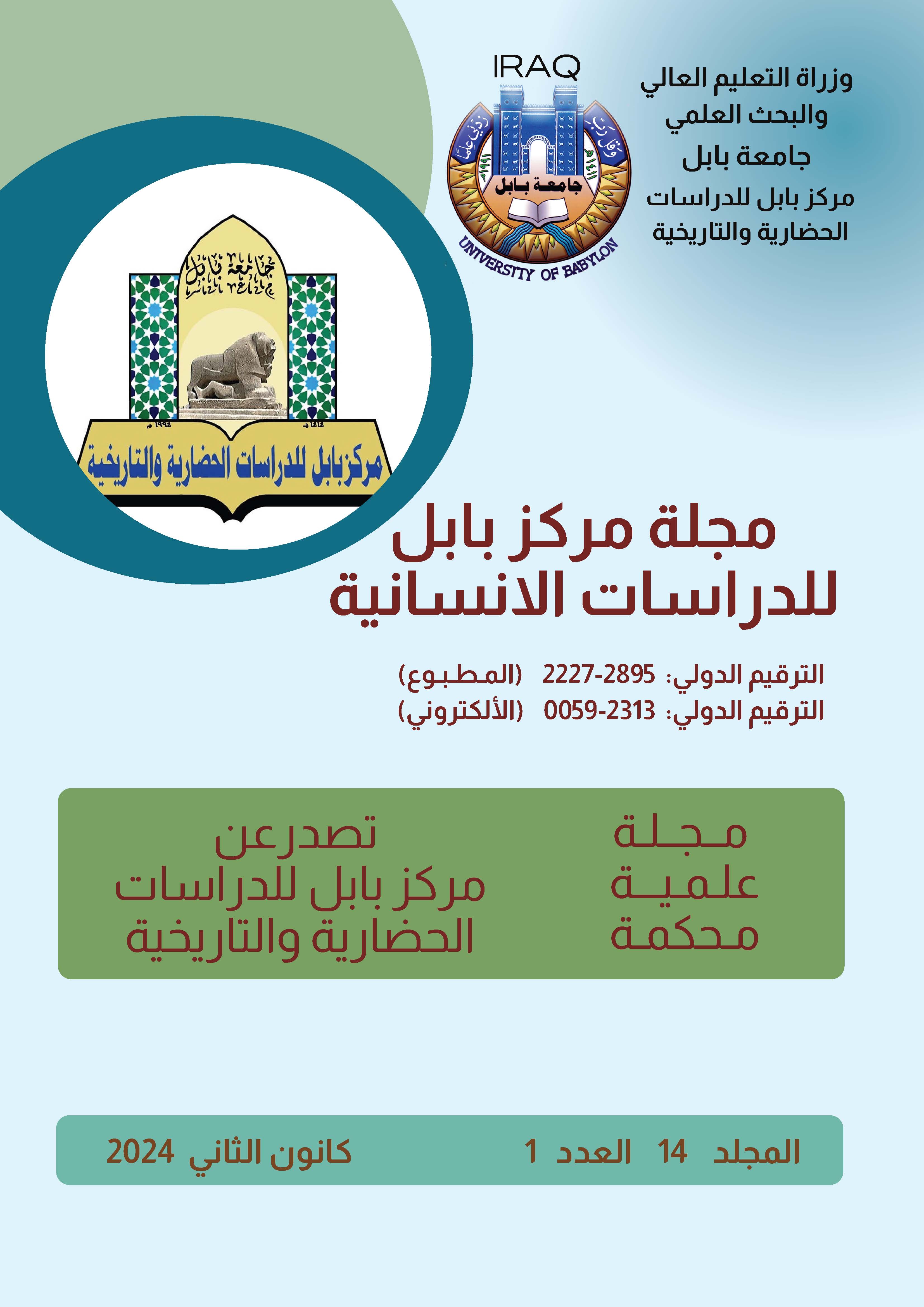موقف وزارة المستعمرات البريطانية من اتحاد وسط افريقيا 1953-1963
الكلمات المفتاحية:
المستعمرات , محميات, الانتداب, سكرتارية, الدومنيونات, الكومنويلثالملخص
تولت وزارة المستعمرات البريطانية إدارة مستعمراتها في ارجاء العالم , خاصة وانها كانت تمتد من شرق العالم الى غربه, لتصبح الإمبراطورية التي لا تغرب عنها الشمس, لاسيما مرت وزارة المستعمرات بمراحل تاريخية لأهمية دورها منذ ان بدأت بريطانيا بتأسيس المستعمرات , اذ كانت السلطة الملكية تمارس عبر نصح وارشاد مجلس شورى الملك , وقد استحدثت في مطلع القرن السابع عشر, واستمرارا لدرجات التطور البطيئة وتجارب عديدة قصيرة العمر حتى القرن الثامن عشر, وأصبحت وزارة منفصلة لإدارة شؤون المستعمرات بعد خسارة المستعمرات الامريكية, واستقلال الولايات المتحدة الامريكية, وللتطورات التي حدثت في القرن العشرين واتساع مهامها تم تقسيمها الى اقسام وحسب الاختصاص ( اقسام الخدمات الداخلية – قسما كبير الموظفين والعامة- قسم المنشآت او المؤسسات – شعب الافراد- اقسام الهجرة / قسم الاستيطان فيما وراء البحار) . ظلت بريطانيا تحتفظ بمواقع ممتازة في المستعمرات والتجارة والملاحة الدولتين, فبالنسبة للمستعمرات نلاحظ ان بريطانيا تمكنت من توسيع مساحة ما كانت تستحوذ عليها , والعمل من اجل تشديد واستغلال ما لديها , وهذا ما دفع بريطاني الى دعم الشركات الاستثمارية والتجارة واتباع سياسة الحماية الكمركية للاستيلاء على مناجم الذهب والماس الغنية في المستعمرات الافريقية, وتحقيق خطتهم التي كانت ترمي الى إقامة امبراطورية افريقية تابعة لهم تبدأ من القاهرة شمالا وتنتهي في كيب تاون جنوبا, لاسيما كان مشروع اتحاد وسط افريقيا والذي ضم الأقاليم( روديسيا الجنوبية – روديسيا الشمالية- المحمية نياسالاند), عام 1953 ليتمم بعضها البعض في الهدف الاقتصادي واستغلاله, وبتقادم الزمن وللضغط والاستغلال الاستعماري, وبالمستوى نفسه كان التنوير الثقافي للشعوب الافريقية الرافضة للاستعمار, وظهور الأحزاب والجمعيات, وترجمة الرفض بالاحتجاجات والاضطرابات, واتساع قضيتهم المصيرية على المسرح العالمي . مما نتج عن ذلك الحصول على استقلال بعض الدول الافريقية.







